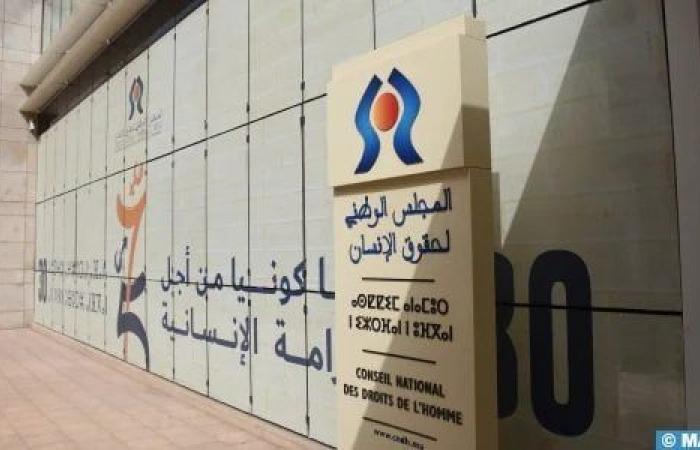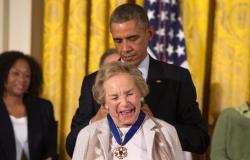Thursday, October 10, 2024 at 4:18 p.m.
Rabat – The president of the National Human Rights Council (CNDH), Amina Bouayach, reiterated, Thursday in Rabat, the commitment of the council and partner human rights actors to continue their advocacy in favor of of the abolition of the death penalty in Morocco.
Speaking at a press conference on the occasion of the World Day against the Death Penalty, celebrated this year under the theme “the death penalty does not protect anyone”, Ms. Bouayach indicated that the establishment of a moratorium on capital punishment, while it is still stipulated in the laws, is more severe than its implementation, given the psychological and social impact that results from it, calling for an end to this serious situation of the wait experienced by convicts and their families.
She stressed, in this context, that the death penalty does not protect anyone as its execution cannot be a source of peace either for the families of the victims, even less for society, adding that the CNDH “will work this year to raise awareness about his vision on this subject”.
Highlighting the firm position of the CNDH on the subject of the abolition of the death penalty, the official indicated that it finds its basis in the absolute nature of the right to life on which other rights are based, as well as on the mission of the CNDH as a national institution ensuring the defense of this right and calling on the legislator to bring the legal provisions into line with Article 20 of the Constitution, as well as with the conventions and pacts ratified by Morocco.
She noted that in the wake of the celebration of the twentieth anniversary of the Equity and Reconciliation Authority (IER), the ambition is to make progress towards the ratification of the optional protocol annexed to the International Covenant aimed at abolishing the death penalty, at the meeting of the Third Committee next December.
This ambition indeed explains the concern of the CNDH, as the institution responsible for monitoring the application of the IER’s recommendations, to ensure that its advisory opinions in criminal matters take into account its unequivocal calls for abolition of the death penalty, she argued.
The Coordinator of the Moroccan Coalition against the Death Penalty, Me Abderrahim Jamai, for his part, noted that the plea for the abolition of the death penalty in Morocco is a “fight on a human scale” for the law. to life, emphasizing the need to listen to the demands of the human rights movement to abolish this sentence.
In this sense, he noted that the death penalty “has no coercive impact in terms of crime prevention, as evidenced by scientific and penal studies published by a number of institutions and universities, in addition to the fact that it involves legal, judicial, legislative and cultural risks that could make capital punishment judgments unfair.”
The Secretary General of the Moroccan Observatory of Prisons (OMP), Abdellah Mesdad, for his part noted that the current global context militates in favor of the abolition of the death penalty, highlighting the membership of the OMP to efforts to put an end to this sentence at the African and Maghreb levels.
The executive director of the global coalition against the death penalty, Aurélie Plaçais, highlighted, in a video intervention, the importance of responding to the demands of Moroccan civil society and human rights organizations calling to abolish capital punishment, in line with Morocco’s commitments and efforts in the field of human rights.
In this regard, she insisted on the need to ratify next December in New York the second optional protocol relating to the International Covenant on Civil and Political Rights, aimed at abolishing the death penalty.
This meeting took part in several ambassadors and representatives of the Diplomatic Corps accredited in Rabat, as well as representatives of national and international human rights institutions.






